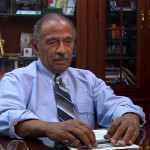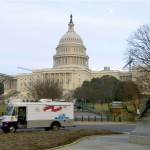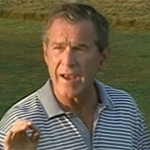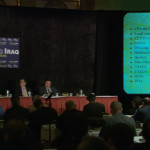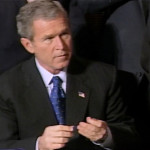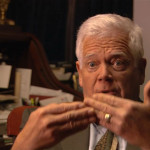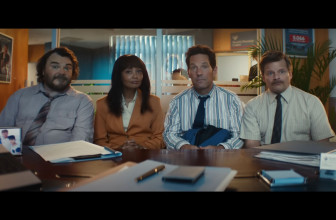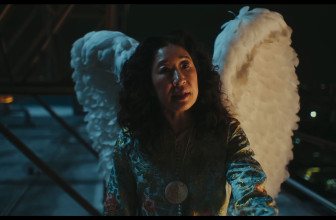Have you ever believed what the mainstream media has force-fed you? Has the thought ever occurred that perhaps what you are witnessing on Television, these reports brought to you by the big media agencies might be instigating propaganda? Well, Michael Moore really believed in this idea, and after a traumatic event that shook the whole world, he decided to investigate. Fahrenheit 9/11 is one of the most ambitious, uneven political documentaries of our time, and by far one of the most important to date.
How to Download Fahrenheit 9/11
Fahrenheit 9/11 was released on June 25, 2004. You can download the film from a digital store. You can also stream it. Click on the Download button at the end of this review and make your choice. If you like documentaries, check out what we think about After Death, Limitless with Chris Hemsworth, or The Tinder Swindler.
The Movie Review
Fahrenheit 9/11 ambitiously tackles the complex web of events following the tragic 9/11 attacks, particularly America’s involvement in Afghanistan and Iraq. Moore delves into the connections between the Bush administration, the Saudi Arabian government, and corporate interests, aiming to uncover a deeper narrative behind the motives for war. The film sheds light on the devastation wrought by these conflicts and attempts to showcase their lasting impact.
Moore’s documentary serves as an impassioned plea for viewers to question the narrative fed to them by the mainstream media and the government. It strives to ignite skepticism about the motivations behind the Iraq and Afghanistan wars, challenging the public to look beyond the surface and question authority. It is pretty well-known that the USA had ulterior motives for jumping into war with Afghanistan and Iraq, but they weren’t well known at the time, and this documentary played a huge part in revealing that side to mainstream audiences.
Uncovering Political and Corporate Collusions
The film certainly presents thought-provoking ideas, that much I can say for sure. Of course, a lot of the ideas presented in the film do tend to have evidence attached to them, despite a lot of the figures involved denying those truths. It highlights the intricate relationships between political figures, corporate giants, and the media. It questions the authenticity of the reasons presented to the public for initiating the wars and uncovers the apparent collusion between the Bush administration and corporate entities.
Direction and Bias in Documentary Filmmaking
Of course, it’s not all perfect. Michael Moore’s direction is forceful, he is adamant on his stance and you can immediately tell that he is unapologetically biased. I mean, it’s fair that a filmmaker known for his subjective stance does have his own ideas to showcase here. However, this overt bias can sometimes overshadow the documentary’s intended message, alienating viewers who seek a more balanced exploration of the subject matter.
Yet, you can’t really need balance when lives are at stake, which they were back when this documentary came out.
Cinematography and Soundtrack
In terms of technical presentation, the documentary doesn’t particularly stand out. It’s shot a lot like a Gangster Film turned Documentary, with a lot of far out shots that make you feel like you’re spying on someone. The cinematography is serviceable, but it definitely lacks the polish and finesse seen in other documentaries of its time. The focus here is clearly on the content rather than on aesthetic allure.
The footage primarily consists of interviews, news clips, and documentary-style shots that serve the purpose but lack a certain visual diversity.
The one thing I gotta give this film credit for is the music. The soundtrack is something else entirely. The way Michael Moore uses music in this film, if t was playing over a video of me eating Doritos, even I would look like a corrupt villain. Say what you will, the man has a knack for using music in the best way possible in his documentaries.
Verdict on Fahrenheit 9/11
Fahrenheit 9/11 is an ambitious endeavor that attempts to unravel the intricate layers behind the Bush administration’s decisions post-9/11. It brings attention to thought-provoking ideas and sheds light on crucial aspects of America’s involvement in the Middle East.
The documentary lacks the technical finesse seen in similar productions, making it a somewhat uneven experience. However, for those willing to wade through its shortcomings, it serves as a starting point for critical discussions about the political landscape of that era.

